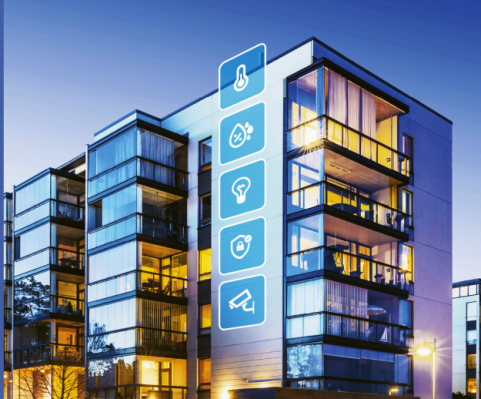As Internet of Things (IoT) technologies continue to mature at an ever accelerating rate, the property management industry is uniquely positioned to take the integration of consumers’ physical and digital lives to the next level, says Reza Raji, senior vice president of IoT at VANTIVA — formerly known as Technicolor — in a podcast interview for journalists.
In so doing, operators and owners of multi-dwelling units (MDUs) offering IoT-based services are creating new value propositions that will transform the entire sector. It is a trend that is already gathering stream.
RELATED: The Internet of Things is not hype and magic, it offers tangible value
According to analysts at Parks Associates, over one-third of U.S. MDU property managers report offering IoT and smart home devices to residents in at least one property they manage.
“While IoT has been getting a lot of press attention in recent years, the underlying technologies have been around for decades. Specific elements of IoT are used by leaders in the multi-dwelling unit sector to manage a wide array of operations that improve compliance, streamline processes and — in an increasing number of cases — generate new revenue streams,” says Raji.
That said, there are a lot of misconceptions about IoT that need to be dispelled.
“Many believe that IoT is simply about putting a bunch of sensors and devices that can be connected via wireless protocols. Others think it’s a gateway…or maybe an app,” he notes. “In reality, it is all of those things. IoT solutions integrate intelligent devices, sensors, gateways and multiple software layers to access cloud resources and gain insights from — as well as control of — connected devices throughout MDUs.”
IoT, he adds, enables the collection and aggregation of data that can then be processed to generate real-time and predictive analytics through artificial intelligence and machine learning (AI/ML).

Reza Raji, Senior Vice President IoT, VANTIVA
It can be utilized to collect, aggregate, and use data to automate simple functions — such as setting thermostat levels and controlling exterior lights — in a manner that optimizes efficiency to create savings.
“The possibilities are almost endless. Let me offer a simple example of IoT in action. Say a tenant locks themselves out of their apartment. Instead of hunting down a manager — or calling a locksmith during off-work hours — doors can be unlocked automatically through a mobile app after ensuring identification and authorization. It saves all involved time, money and aggravation,” says Raji.
Role of IoT in Enhancing Compliance and Reducing Liability
Compliance and liability management are among the most important — and complex — issues property owners and managers must address to run healthy businesses.
“In multi-dwelling units, for instance, water damage is a top-priority safety and compliance issue that IoT can address. If you can prevent water leakage from happening in the first place — or detect it as quickly as possible — enormous sums of money can be saved while preventing safety and health issues from worsening, like slippery floors and black mold,” Raji says.
IoT can even be applied for rodent detection by integrating sensors and traps that wirelessly communicate their status. Monitoring and controlling common pests across the board can have a massive impact because it is both a health and safety issue. It is a preventative measure that IoT solutions can streamline and optimize.
Security is essential as well
“Ensuring the safety of tenants through centralized and automated security systems can significantly reduce liability issues. While security is not new, integrating it with other operational silos while automating and managing critical functions from a central place can address critical areas of concern in a highly responsive and cost-effective manner,” he says.
VANTIVA Stakes Out Position in MDU IoT
While many MDU operators can gain significant value from its effective IoT implementation, most lack the expertise and knowledge to integrate these moving parts and achieve important business objectives seamlessly.
The reason is that IoT can be extraordinarily complex. The industry itself is highly fragmented. Critical value chain links still need help with how best to come together to create cohesive business solutions.
“This is why the right partnerships are going to play a critical role in ensuring the success of IoT in the MDU environment,” says Raji. “Nobody should expect property managers and owners to become technology experts. Just as they rely on service providers to deliver Wi-Fi or cable TV services, they should look for experts who can deliver IoT integration services.”
VANTIVA, he says, comes at the challenge from a position of strength because the company’s decades of experience and expertise in delivering internet, Wi-Fi connectivity and integration services to residential environments.
“We have been enabling connected homes around the world for decades. Our connectivity and wireless solutions are used by more than 250 operators globally,” he says. “We also set the industry standard in fiber home gateways that provide robust home network controls, advanced Wi-Fi technologies and mobile apps that enable end users to optimize today’s truly connected home.”
VANTIVA, he observes, also leads the industry in end-to-end security and privacy solutions and holds an ISO 27001 certification — the global standard for information security management.
“These pillars of competencies uniquely position VANTIVA to deliver integrated IoT solutions to ensure safe, reliable, stable, high-performance IoT services to the MDU market,” he concludes.
































